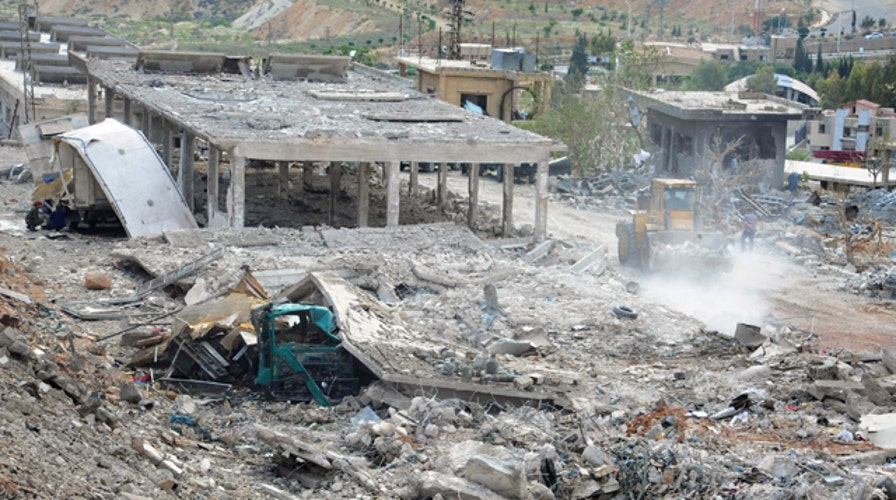Could Israeli airstrikes benefit Assad’s regime?
Col. Cedric Leighton on the possible threat to regional stability
The Obama administration on Monday disputed a U.N. official's initial claim that opposition forces -- and not the Assad regime -- may have been the ones who used chemical weapons in Syria, as U.N. investigators began to walk back the controversial comments.
The claim was made Sunday by Carla Del Ponte, a member of the U.N. commission looking into the alleged use of the nerve gas sarin in Syria. According to Reuters, she told Swiss-Italian television there are "strong, concrete suspicions but not yet incontrovertible proof" of sarin gas being used. She said it was "on the part of the opposition, the rebels, not by the government authorities."
But the White House and Pentagon sharply challenged the claim.
"The commission has not reached any conclusive findings. The fact of the matter is that we are highly skeptical that the opposition has used chemical weapons," White House Press Secretary Jay Carney said Monday.
He claimed it's most likely the Assad regime was behind any weapons use.
Pentagon spokesman George Little also said, during a press briefing earlier in the day, there is no information to suggest the opposition used chemical weapons or would use them.
"We strongly believe that if chemical weapons were used it would be by the regime," Little said.
The U.N. commission investigating the attacks also watered down Del Ponte's comments in a written statement Monday, as they came under increasing scrutiny. The Independent International Commission of Inquiry on the Syrian Arab Republic said it "wishes to clarify that it has not reached conclusive findings as to the use of chemical weapons in Syria by any parties to the conflict."
The statement continued: "As a result, the Commission is not in a position to further comment on the allegations at this time."
The question of whether the Assad regime has used chemical weapons is a highly sensitive one with significant ramifications, as the Obama administration has called their use a "red line" which could prompt military action.
U.S. intelligence officials have determined it is likely they were used, but the White House says more evidence is needed about the circumstances.
Complicating the situation were the apparent Israeli airstrikes on Syria over the weekend.
The strikes were said to be a bid to stop Iranian missiles from going to the terror group Hezbollah. It's unclear how successful the strikes were, but both the Assad regime and opposition groups condemned them.
Carney, without commenting in any detail on the strikes, said Israel "certainly has the right to be concerned of transport of sophisticated weapons."
He said the U.S. is in "close coordination as a matter of course with the Israelis and (continues) to be."
The administration has several options available to it, short of a ground-force military intervention -- which President Obama has appeared to rule out.
Defense Secretary Chuck Hagel said last week the administration is weighing the possibility of arming the opposition as a first step.
Aaron David Miller, with the Woodrow Wilson International Center for Scholars, said Monday that at this point, "there's very little" the U.S. can do to "change the overall arc of this crisis."
Despite the recent attention to accounts of chemical weapons use, he said: "There are no game-changers here."
"This is a Chinese water torture -- Syria, it's going to roll out in drips for months to come," he said.





